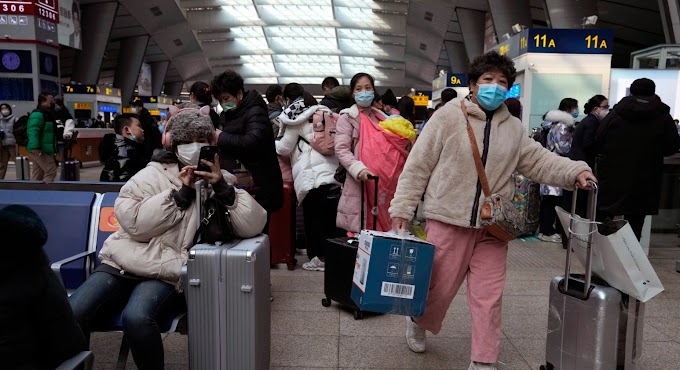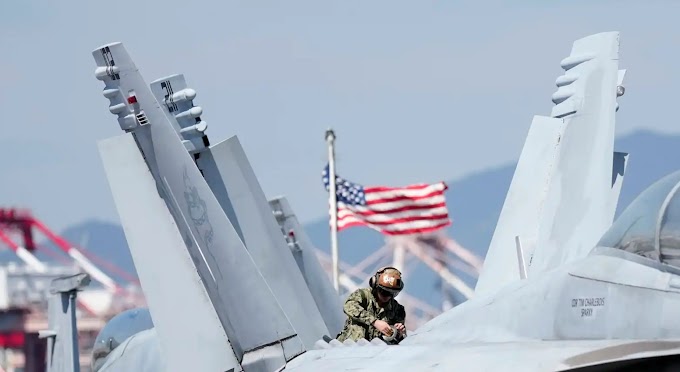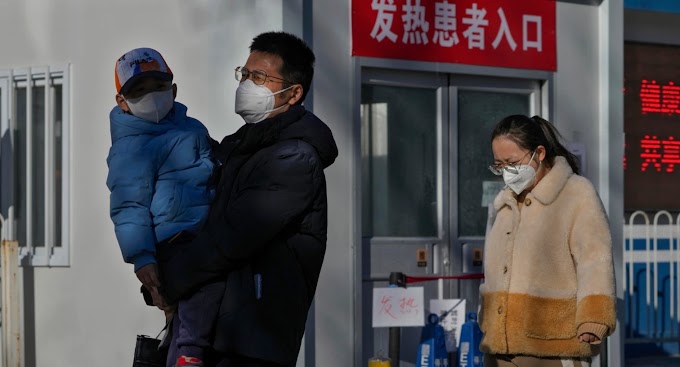China suspends imports of some Taiwanese products to coerce the government with economics? Scholar: Taiwan government needs to react quickly and fight Chinese fake news
 |
| Kinmen Kaoliang Liquor on display in a store in Taiwan (photographed by VOA Chung) |
WASHINGTON —
In the past week, the issue of China suspending imports of aquatic products, snacks and alcohol on the grounds that Taiwanese companies exporting products to China have "incomplete registration information" has caused great controversy in Taiwan. The Taiwan government criticized China for banning imports without warning. Taiwan products are "administratively intervening in trade". Some scholars say that this is part of Beijing's continued pressure on Taiwan. The Taiwan government must not only respond quickly to mitigate its influence, but also fight against fake news activities from China.
Following China’s restrictions on the import of agricultural and fishery products such as Taiwanese grouper, pineapple, and custard earlier this year, China has recently suspended the import of Taiwanese squid, saury, and saury, etc., on the grounds that Taiwanese companies have “incomplete registration information.” product. Last week, the General Administration of Customs of China added a batch of alcoholic products such as Kinmen sorghum liquor and Taiwanese beer to the list of suspended imports. At present, more than 2,000 Taiwanese products are prohibited from being imported by China.
The General Administration of Customs of China issued the "Regulations on the Administration of Registration of Overseas Manufacturers of Imported Food" in April 2021, and it will come into force on January 1, 2022. However, after China issued the regulations, hundreds of Taiwanese companies were unable to complete the registration, resulting in the fact that many products are still unable to be exported to China.
Taiwan government expresses regret and dissatisfaction
The Taiwan government said that China allows other countries to complete the registration by the end of June next year, and can register through the Internet, but requires Taiwan to submit registration documents by the end of June this year, and at the same time stipulates that applications for registration must be made in paper. In addition, none of the manufacturers whose products were banned from Taiwan were given a reason from the Chinese government as to why their products were banned.
Taiwan’s Mainland Affairs Council stated on December 8 that Taiwan’s competent authority received a notice from the General Administration of Customs of China in early August this year requiring the industry to complete supplementary documents before August 31. Taiwan’s businesses have already submitted 178 applications for supplementary documents, but China has not yet responded to these Any decision or statement made as a result of the review of the supplementary documents will "greatly affect the rights and interests of Taiwanese businesses." The MAC feels "regret and dissatisfaction" with China's "unwarranted" suspension of Taiwan's aquatic product imports, and also expresses "serious protest."
Taiwan has just held the "nine-in-one" local elections, and the outside world is paying attention to how the major political parties will plan for the 2024 presidential election. Some people in Taiwan believe that China's adoption of this approach at this time has something to do with Taiwan's political situation.
Guo Zhewei, a doctoral candidate in economics at George Washington University in the United States, said in an interview with Voice of America that the best way to see whether China’s ban on imports of Taiwan products is a political tactic to “coerce the government with economics” is to see how they feel about imports from other countries. Whether the products imported by the country have the same standard.
involved in politics
Guo Zhewei said that he does not think that Beijing's actions have any direct relationship with the "nine-in-one" election, "after all, China must know that the outside world's interpretation of this local election is that the more pro-China Chinese Nationalist Party won, and China should have no extra The motive is to put pressure on Taiwan by means of trade restrictions”; he also does not think that this ban is related to the 2024 presidential election, because the presidential candidates of Taiwan’s two major political parties have not yet been determined, and China should not think about it at this point in time.” Interfering with "Taiwan's political situation and bipartisan nominations. However, he believes that there is indeed "a political element" involved.
"I'm referring to the fact that cross-strait relations have frozen sharply after the Democratic Progressive Party took power. As a result, China may change the relatively loose standards for imported goods from Taiwan to be a little stricter."
Guo Zhewei, who specializes in the study of international trade agreements, said that the policy of using regulations or standard inspections as trade obstacles has become a technical barrier to trade (Technical Barriers to Trade, TBT) among international traders. The World Trade Organization has a department that deals specifically with "technical barriers to trade" And the Dispute Settlement Committee, he believes that China’s ban on Taiwan’s food imports on the grounds that the food import registration form is not completed is “obviously a trade obstacle in this category.”
He said that the best way to see whether China discriminates against the import of Taiwanese products is to see whether China has the same level of food registration import form as Taiwan for food imports from other countries.
"If it can be proved that China's policy is non-discriminatory and non-preferential to any country, it is less likely to be a political means. However, from the current media reports, it seems that China's policy is only for Taiwan's food has added requirements for 'recipe' and 'origin of raw materials', so it's hard not to think that this is a means of restricting Taiwan's food exports to China based on the cross-strait political situation."
As for what the Taiwan government can do, Guo Zhewei said that it is of course a better way to communicate directly with the Chinese government, because going through the dispute settlement mechanism of the World Trade Organization is not only time-consuming and expensive, but "according to the current cross-strait situation, I am afraid it is very difficult difficulty."
China's economic and military dual coercion
Regarding whether China's suspension of imports of Taiwan products may have an impact on Taiwan's internal political situation, Chen Fangyu, a political science professor at Soochow University in Taiwan, also answered a question from Voice of America in an online discussion at the Global Taiwan Studies Center in Washington on Thursday.
Chen Fangyu said that just as China invaded the airspace around Taiwan with a large number of military planes earlier this week, Taiwan has endured both economic and military coercion from China within a week. His team has analyzed various ways of coercion imposed by China on Taiwan, and found that China seized Taiwan's diplomatic relations or used military aircraft to harass Taiwan to intimidate Taiwan, because it has little direct relationship with the daily life of the people of Taiwan, and the people do not particularly care about it. , and military plane intimidation has become the "new normal" since 2018 long before the US House of Representatives Speaker Pelosi visited Taiwan, and it has not had much psychological impact on the Taiwanese people.
"But with economic coercion, I think that will translate into votes if our government doesn't respond to it. For example, our government has to respond very quickly that we have done everything we can to assist farmers, assist manufacturers to ease those effects."
In addition to trying to communicate with China to solve the problem of farmers and manufacturers whose products are banned from China, or to help them open up new markets, Chen Fangyu said that the Taiwan government must also fight against China's fake news and official propaganda.
He said that many such incidents as fake news from "content farms" were blamed on the Taiwan government, and some of them even made it into Taiwan's mainstream media, mainstream TV and newspapers, which instead blamed their own government.
"Because China will say, 'That's your problem, there are some problems with your products, that's why we banned them,' and that's not true, so we have to fight that propaganda too."
Raid Administrative Intervention in Trade
In an interview on December 11, Su Tseng-chang, Taiwan’s executive president, said that China’s trade ban on aquatic products and alcoholic beverages imposed on Taiwan was “administrative intervention in trade” and violated WTO norms. The requirements for Taiwan’s products were particularly “strict” and "discriminate".
Taiwan’s President Tsai Ing-wen also said on her Facebook page on December 9 that China “has once again used surprise attacks to hinder the export of Taiwan’s aquatic products to China. Such an approach will not help the normal cross-strait trade exchanges.”
Tsai Ing-wen said that in addition to being seriously concerned, the Taiwan government has also launched countermeasures immediately. Some key units are invited to continue to communicate and understand the reasons. The government will also fully assist fishermen to ensure that their livelihoods, income and rights are protected.
However, some netizens did not appreciate the messages on Tsai Ing-wen’s Facebook, thinking that China had issued a regulation early on requiring that all food exported to China must be registered. "Seriously concerned", this "whole paragraph is empty talk", the DPP said it would "resist China and protect Taiwan", why "won't it resist going back? Or is it simply not capable?"
Taiwan’s opposition Kuomintang also called on the DPP government in a statement to “stop putting ideology in command and pragmatically resolve cross-strait economic and trade issues” and actively assist businesses in resolving issues, “rather than using cross-strait confrontation as an excuse for administrative laziness.”
China warns: Don't do stupid things
Regarding Taiwanese media reports that China "prohibited the import without warning" of imports of aquatic products such as Taiwan sardine fish and saury, the Taiwan Mainland Affairs Council also stated that it would express a solemn protest. released a response from Zhu Fenglian, a spokesperson for the Taiwan Affairs Office of the State Council of China.
Zhu Fenglian said that some food companies exported from Taiwan to the mainland have "incomplete registration information and do not meet the requirements of the mainland." The relevant departments have not yet registered these companies. Provide the required business registration information to relevant departments.
She said that the so-called "prohibition of imports without warning" is not only inconsistent with the facts, but "purely deliberate hype" and "the so-called 'serious protest' is even more unreasonable." It is a foolish thing to harm the industry on the island."







